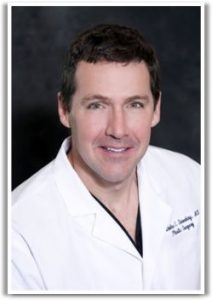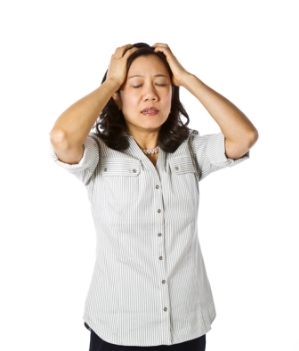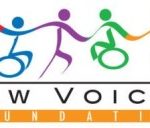According to Nashville-based, Board Certified Plastic Surgeon and Founder of Ageless Solutions, Dr. Nicholas Sieveking, “menopause can surely be a crazy time in a woman’s life. Not only does it signal the fact that she can no longer procreate, she will most likely suffer from some symptoms; physical, mental or both. As the body is depleted of estrogen, bones lose calcium and become more brittle which can lead to osteoporosis, hormonal fluctuations prompt hot flashes and night sweats and vaginal dryness can become a problem.”
And of course, as with anything, there are myths floating around about menopause from when it will hit to the best way to combat its symptoms. Here’s are some things I hear from patients which serve as a relatable rundown to help women navigate their way through what can be, a very confusing time.
- “I just had my last baby 4 years ago! I’m only 40! How can I be perimenopausal? “
While it’s been largely believed that menopause begins at 50, this just isn’t true. The average age to begin menopause tends to be 52, but women can actually begin anywhere from their 30’s to 60’s. Perimenopause, the shift leading up to menopause, can begin anywhere from a few months until a year before actual menopause starts. Symptoms include but aren’t limited to night sweats, trouble sleeping through the night, shorter or irregular periods, crashing fatigue, sore muscles, dizziness, changes in nails and hair. It’s important for women to keep a health log of any changes they notice in their bodies after age 35 and mention them to their doctors during checkups.
- “I’m not menopausal! I haven’t even had one hot flash.”
Hot flashes and menopause seem to go hand in hand. But they are not always the first sign. While most women experience hot flashes not every woman does so if they aren’t aware of the other emotional or mental changes they may solely focus on the physical changes. The start of menopause can also be signaled by anxiety, depression, fuzzy or unclear thinking with inability to focus, low libido, forgetfulness, short temperedness or irritability. Pay attention to how you are feeling day to day. The more attuned you are to your body the sooner you’ll flag any changes.
- “Weight gain comes with the territory. Nothing I can do will change that.”
As estrogen is depleted, the body may experience hormonal imbalance. The body often responds by trying to protect itself and a main way of doing that is storing fat. But women don’t have to gain weight without a fight. Some ways to keep a well-maintained weight are:
- Look for high-fiber foods. They can help with constipation, which is often associated with menopause because lack of estrogen can decrease bowel activity.
- Eat plenty of calcium and vitamin D-rich foods, like low-fat dairy products, green leafy vegetables, beans and fish. They help to keep bones strong.
- Give soy a try. Soy contains estrogen. While the jury is still out on whether soy can actually help, it can’t hurt. Add it to your diet for a month or so and see if it has any effect. Drink 1-2 cups of soy milk or eat a cup of edamame on a daily basis.
- Women need 1,000 – 1,500 mg daily of calcium and 800 units of vitamin D daily. It’s very hard to get that much through food alone. Supplements are very helpful.
- In addition to helping battle the bulge, walking, jogging and strength training can help stimulate bone growth and increase bone density. Balancing exercises can help with strength and will make you less likely to fall. Falling during and after menopause increases chances of breaking a bone.
- “I can handle my liquor besides; red wine is good for me.”
Understand that during the onset of and stages of menopause, the body will not experience alcohol and caffeine as it always has. Alcohol, especially red wine, can trigger hot flashes. It can also diminish calcium absorption and inhibit live enzymes that activate vitamin D. Caffeine increases calcium excretion and reduces how much of it the body can absorb. Both alcohol and caffeine are dehydrating stimulants that can make night sweats even worse.
- “I yelled at the dog and then I cried about it for an hour.”
Changes in progesterone and estrogen levels may cause mood swings. Things seem to set you off. You may fee rage then sadness. Drops in progesterone may cause increased irritability and moodiness. Also, don’t underestimate the power of what menopause really means. With childrearing days behind them, many women begin to think about the rest of their lives. No doubt, these thoughts can trigger feelings of anxiety and depression.
- “I got my period when I was 16 so I won’t be menopausal until later.”
An older age at first period doesn’t automatically mean a later start to menopause. Actually, the opposite tends to be true. If a girl gets her period on the later side, she may begin menopause on the earlier side. However, predicting the age a woman will begin menopause is difficult. Pay attention to your body. After age 40 you’ll notice more and more changes and symptoms of menopause.
The process of menopause is a part of a woman’s life. Work closely with your doctor to create a plan that combines healthy foods, exercises, stress management and a commitment to enjoying life to its fullest. There is so much to look forward to. Having a positive outlook is the key to looking your best regardless of age and stage.


Dr. Sieveking has operated and lectured around the world on topics of face lifts, breast surgery, and cleft lip and palate repair. He has authored a chapter on Rhinoplasty in one of the major training textbooks for plastic surgery residents. In 2012 and 2013, he was voted “Top Plastic Surgeon in Nashville” in two Readers Polls by the citizens of Nashville.
www.sievekingplasticsurgery.com




